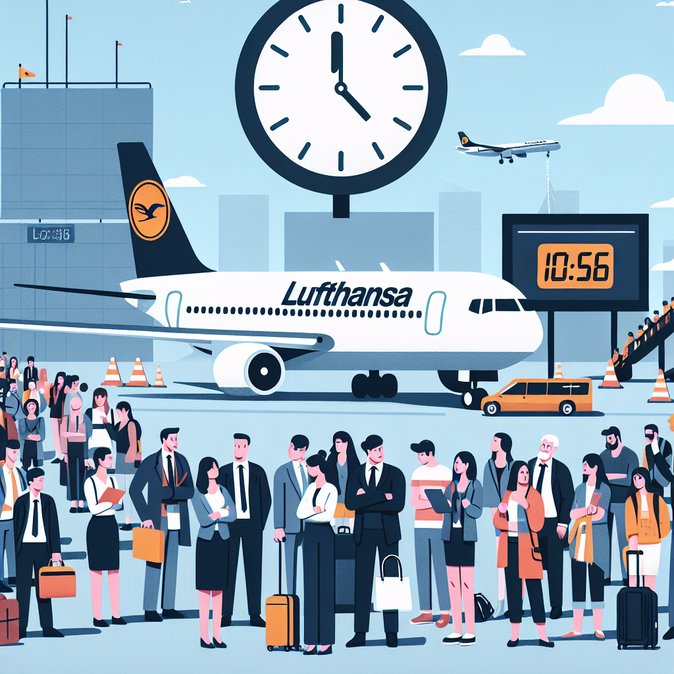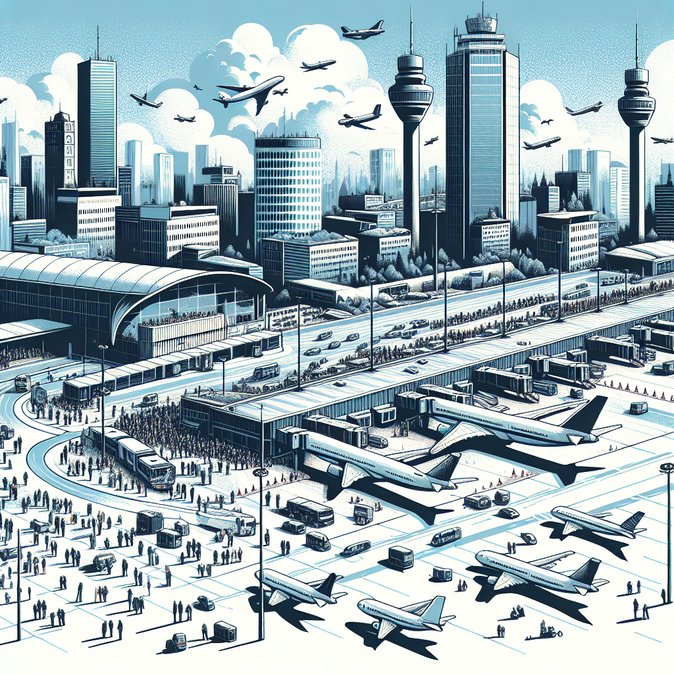
Germany’s flag-carrier is facing its most serious industrial action of the year after the pilots’ union Vereinigung Cockpit (VC) called a 48-hour strike that started at 00:01 on Sunday, 23 November 2025. According to a statement released by the airline on Sunday evening, a special contingency timetable is operating, but 912 flights— including 82 long-haul services— have been cancelled for Monday, 24 November. More than 115 000 passengers will have to re-route or postpone their travel.
The union is demanding a significant increase in employer contributions to the company pension scheme and has rejected Lufthansa’s latest offer as “non-negotiable.” Management counters that the airline already provides one of the most generous pension packages in European aviation and warns that the union’s proposal would add “high double-digit millions” to annual staff costs. Talks broke down late last week, prompting VC to extend its original 24-hour strike by an additional day.
Operationally, Lufthansa says just over two-thirds of its normal 3 000 daily flights are able to operate. Group airlines—SWISS, Austrian Airlines, Brussels Airlines, Eurowings, Air Dolomiti and Lufthansa CityLine—are not on strike and are covering some intra-European sectors. The carrier has booked 4 000 hotel rooms in the Frankfurt and Munich areas for stranded travellers and sent some 70 000 SMS or e-mails with rebooking instructions. A free hotline (0800 850 60 70) has been set up for passengers in Germany.
![Lufthansa Pilot Strike Disrupts 900+ Flights as Union Extends Walk-Out Through 24 November]()
Business-travel managers should brace for continuing disruption into the new work-week. While walk-outs are currently limited to Lufthansa-mainline pilots, airport congestion and knock-on delays are expected across Germany’s largest hubs. Companies with assignees flying in for German residence-permit appointments or EU Blue-Card start dates are advised to reconfirm consular interviews— the Federal Police typically allow a short grace period for missed appointments caused by flight cancellations, but proof of disruption (e.g., cancellation e-mail) is required.
Should the labour dispute drag on, mobility teams may need to accelerate contingency planning. Rail travel on Deutsche Bahn’s ICE network remains unaffected and can substitute for domestic connections, while KLM-Air France, British Airways and Iberia are still showing seat availability on feeder flights to Germany via their hubs. Companies operating time-critical airfreight should note that Lufthansa Cargo is not part of the strike, but belly-hold capacity on passenger aircraft will be reduced for at least two days.
The current strike is also a reminder that Germany’s aviation sector has not yet adopted the compulsory minimum-service levels that France and Spain introduced this year. Draft legislation that would mandate a 24-hour arbitration period before a strike in “critical transport infrastructure” can begin is still tied up in committee in the Bundestag. Until that law is passed, airlines and corporate mobility teams must rely on contingency rosters and real-time traveller tracking to mitigate risk.
The union is demanding a significant increase in employer contributions to the company pension scheme and has rejected Lufthansa’s latest offer as “non-negotiable.” Management counters that the airline already provides one of the most generous pension packages in European aviation and warns that the union’s proposal would add “high double-digit millions” to annual staff costs. Talks broke down late last week, prompting VC to extend its original 24-hour strike by an additional day.
Operationally, Lufthansa says just over two-thirds of its normal 3 000 daily flights are able to operate. Group airlines—SWISS, Austrian Airlines, Brussels Airlines, Eurowings, Air Dolomiti and Lufthansa CityLine—are not on strike and are covering some intra-European sectors. The carrier has booked 4 000 hotel rooms in the Frankfurt and Munich areas for stranded travellers and sent some 70 000 SMS or e-mails with rebooking instructions. A free hotline (0800 850 60 70) has been set up for passengers in Germany.

Business-travel managers should brace for continuing disruption into the new work-week. While walk-outs are currently limited to Lufthansa-mainline pilots, airport congestion and knock-on delays are expected across Germany’s largest hubs. Companies with assignees flying in for German residence-permit appointments or EU Blue-Card start dates are advised to reconfirm consular interviews— the Federal Police typically allow a short grace period for missed appointments caused by flight cancellations, but proof of disruption (e.g., cancellation e-mail) is required.
Should the labour dispute drag on, mobility teams may need to accelerate contingency planning. Rail travel on Deutsche Bahn’s ICE network remains unaffected and can substitute for domestic connections, while KLM-Air France, British Airways and Iberia are still showing seat availability on feeder flights to Germany via their hubs. Companies operating time-critical airfreight should note that Lufthansa Cargo is not part of the strike, but belly-hold capacity on passenger aircraft will be reduced for at least two days.
The current strike is also a reminder that Germany’s aviation sector has not yet adopted the compulsory minimum-service levels that France and Spain introduced this year. Draft legislation that would mandate a 24-hour arbitration period before a strike in “critical transport infrastructure” can begin is still tied up in committee in the Bundestag. Until that law is passed, airlines and corporate mobility teams must rely on contingency rosters and real-time traveller tracking to mitigate risk.









